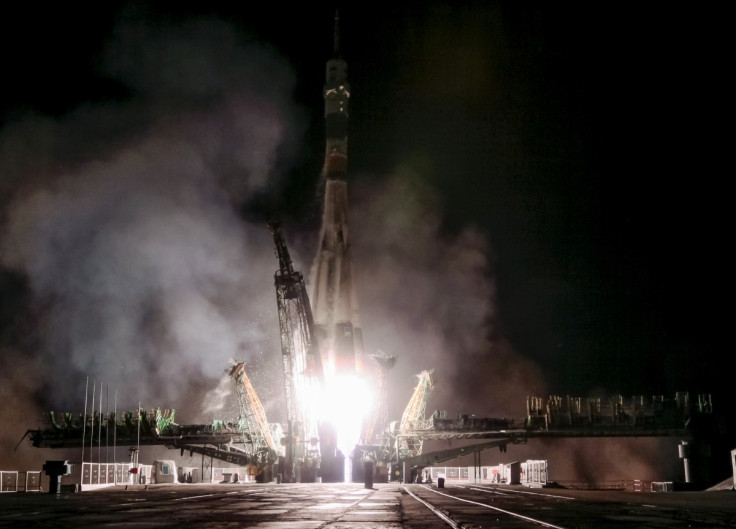Russian Soyuz spacecraft docks with ISS six hours after launch from Kazakhstan

A Russian Soyuz spacecraft has successfully docked with the International Space Station (ISS) six hours after launching from the Baikonur cosmodrome in Kazakhstan. The spacecraft lifted off from Baikonur at 9.26pm GMT and several minutes into the flight successfully separated from all of the booster rocket stages, setting a course towards the ISS.
The Soyuz TMA-20M vehicle docked to the ISS Poisk module at 3.09am GMT approximately 250 miles above the Southern Pacific Ocean off the western coast of Peru less than six hours after the launch.
Aboard the spacecraft was Nasa astronaut Jeff Williams and Russian Roscosmos cosmonauts Oleg Skripochka and Alexey Ovchinin. Williams is set to become the American with the most cumulative days in space during the six-month mission usurping Scott Kelly's new record of 520 with a total of 534 days once completed.
They will replace a crew that are finishing a nearly year-long flight and will team up with European Space Agency (ESA) astronaut Tim Peake, Expedition 47 NASA astronaut Tim Kopra, and Russian Federal Space Agency cosmonaut Yuri Malenchenko. "The Soyuz rocket took off successfully," the Russian space agency Roskosmos said in a statement on Friday. "
The Soyuz TMA-20M vehicle docked to the International Space Station’s Poisk module at 11:09 p.m. EDT/3:09 a.m. UTC with ...
Posted by International Space Station on Friday, 18 March 2016
The takeoff marked the 20th and last launch of the Soyuz TMA-M capsule which has now been updated with the Soyuz MS the fourth generation of the spacecraft. "According to plan we were supposed to fly onboard the new Soyuz MS-01, but for reasons beyond our control its first launch was moved to the 'right'," said Skripochka according to RT.
The crew, who will spend 177 days on the ISS conducting scientific experiments, will prepare for the arrival of an Orbital ATK cargo ship. Leaving from Florida on 22 March the cargo ship will test the effects on fire on a range of materials as it re-enters the atmosphere.
LIFTOFF! @Astro_Jeff & 2 cosmonauts launched at 5:26pm ET to the @Space_Station. https://t.co/KX5g7zfYQe https://t.co/7zvRKLT25z
— NASA (@NASA) March 18, 2016
As a precursor for a trip to Mars the New Jersey-born former US Navy captain, Kelly, was part of an experiment that tested the effects of long-duration spaceflight on the body and mind. Nasa is studying how best to prepare humans for an enduring space expedition to the red planet.
During these long flights astronauts will suffer more exposure to radiation, bone and muscle loss and changes in their cardiovascular, immune and other systems. This is known only too well by Russian cosmonaut Gennady Padalka, who holds the record for longest consecutive time in space after spending a total of 879 days away from Earth.
© Copyright IBTimes 2025. All rights reserved.






















